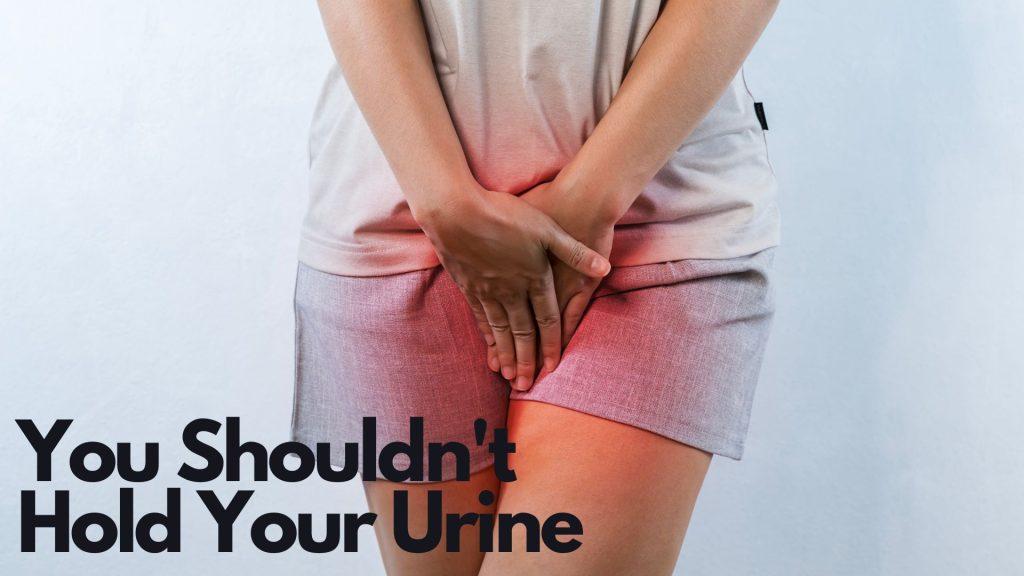
Introduction
Most of us ignore the need to urinate at night. It’s harmless, after all, especially when sleep is too tempting to rouse. But holding whether urine at nighttime could be more dangerous you ought to believe.
Why We Pee at Night
The human body is made to reduce the amount of urine it produces at night. This enables us to sleep longer, uninterrupted by bathroom breaks. But that balance is sometimes thrown out of whack.
Common reasons as to why you need to pee at night:
Too much water before bed
Diuretic foods or beverages (such as coffee, alcohol, or citrus)
Medical conditions (such as diabetes or overactive bladder)
Pregnancy
Enlarged prostate in men
However, when you have to go, it’s best not to hold it in for too long.
What Happens If You Hold Your Pee at Night?
Yes. Holding urine for a long time and particularly overnight can lead to some health problems.
Short-Term Problems
Bladder pain: When you hold urine, the bladder expands.
Sleep trouble: That urge to go can rouse you or interrupt deep sleep.
Hazardous events: You risk leaking or wetting the bed if you hold it too long.
Long-Term Risks
When urine remains in the bladder for an extended period of time, bacteria can proliferate and cause UTIs.
Damage to bladder: With time, the bladder muscles becomes weak.
Kidney issues: In extreme circumstances, urine backflow could cause kidney damage.
Signs You’re Holding It In for Too Long
Your body might be trying to tell you something. Watch out for these signs:
Pain or pressure in the lower abdomen
Trouble starting to urinate
A stinging sensation when you eventually go to the toilet
Inside, as usual, they want to go out.
Urine that’s cloudy or smelly
If these symptoms sound familiar, it’s time to change your routine.
What Happens When You Hold Your Urine Too Long?
If this becomes your habit, a few things occur:
Bladder Stretching
The bladder can stretch too far, making it hard to empty the bladder completely.
Increased Risk of Infections
Urine left sitting in the bladder undergoes some decomposition, facilitating bacteria.
Incontinence
Gradually, bladder control can weaken, leaving us less able to wait to “go.”
Kidney Damage
Rarely, prolonged retention can lead to urine backing up to the kidneys. This is known as hydro nephrosis and can cause irreversible damage to the kidney.
People at Higher Risk
Certain individuals are at greater risk of dealing with complications from retaining urine:
Older people (they have weaker bladder muscles)
Pregnant women
Men with prostate issues
Individuals with diabetes or neurological diseases
Kids who wet the bed
Individuals in these groups should exercise extra caution when it comes to nighttime bathroom routines.
Nighttime Urine Holding Prevention Tips
A few habit tweaks go a long way.
Limit Fluids Before Bed
Avoid large amounts of water two hours before going to sleep.
Avoid Caffeine and Alcohol
These are diuretics. They make you pee more.
Use the Bathroom Before Bed
Even when the urge isn’t there for you, incorporate this into your nightly routine.
Stay Hydrated During the Day
Drink plenty of water earlier in the day so you’re not thirsty at bedtime.
Keep a Bathroom Journal
Logging your bathroom trips at night can reveal patterns.
Healthy Bladder Habits
Here are additional wellness tips for a healthy bladder:
So your pee every 3–4 hours during the day
Don’t rush when you go. Go ahead and do your business.
Wipe from front to back (for women) to guard against infections.
Wear breathable underwear
Pelvic floor exercises to help strengthen bladder control
When to See a Doctor
Sometimes, nighttime urination can indicate something more serious. Talk to your doctor if:
You have to pee more than once every night
You have pain or burning when you pee
You see blood in your urine
You think your bladder is never fully emptied
They might perform tests to look for infections, diabetes or other problems with the bladder.
Does Keeping Urine For Long Affect Your Body And Makes You Gain Weight?
This is a common worry, but no, holding your urine doesn’t actually cause weight gain. It can, however, cause bloating or discomfort that can feel weight gained.
It’s best to be checked if you have swelling or bloating.
Does Age Matter?
Yes. Bladder control can change as we age. That means older adults are likely to need to visit more frequently. But yet again, holding it is never the answer.
Others seniors are afraid to get up because they fear falling. If that’s a concern, motion lights, nightlights or bedside urinals can assist.
Resources for Difficulty with Nighttime Urination
Here are some ways to make nighttime journeys more manageable:
Lights (nightlights or motion sensor lights).
Easy-slip slippers or socks
A mattress protector that is waterproof
Bedside commodes or urinals
Absorbent underwear for leaks
Such minor adjustments can help make nighttime trips to the bathroom safer and easier.
Final Thoughts
Seems innocuous, right, holding in your pee — particularly at night. But your body requires regular, healthy bathroom habits to function properly. Don’t wait until you’re in pain or have larger problems.
Instead:
Listen to your body.
Pee when you need to.
We are educated on data till October 2023.
FAQs
Is it normal to wake up to urinate once or twice a night?
Yes, if you consume liquors at bedtime or drink fluids before bedtime or have medical conditions.
Does holding your pee cause kidney failure?
Not directly. However, if someone has chronic retention it can lead to infections or backflow to kidneys which can cause damage to them.”
How long can you hold your pee safely?
Doctors say you shouldn’t go any longer than 6—8 hours between pees. During nighttime, that simply means using the loo prior to sleep.
Can children hold urine through the night?
Yes, but [in an instance of] they should be trained to listen to their body. It is normal to experience bedwetting under the age of
